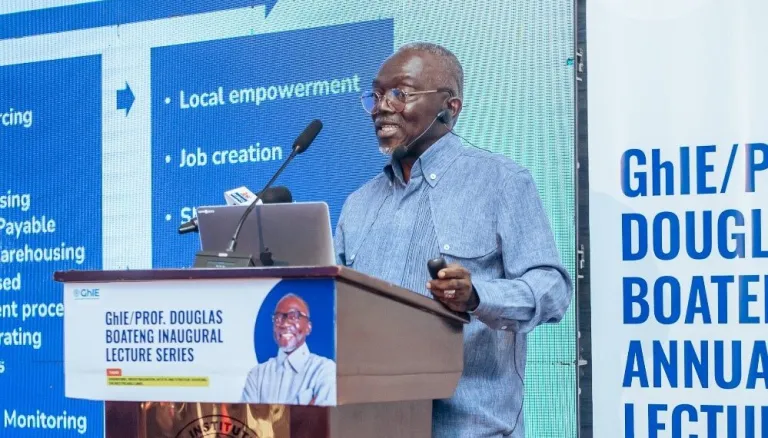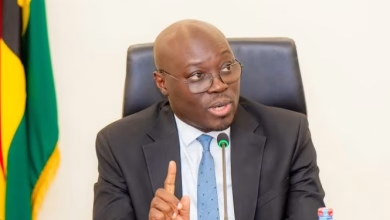Business
Engineering Leader Calls for Long-Term Industrial Plans In Africa

- Prof urges African nations to move away from short-term thinking
- He criticized short electoral cycles
- Speakers emphasized the need for long-term industrial policies
Professor Douglas Boateng, a keynote speaker at the Ghana Institution of Engineering (GhIE) and Professor Douglas Boateng Annual Lectures, urged African nations to move away from short-term thinking and establish long-term industrial policies.
Focus on Long-Term Vision
- Criticized short electoral cycles (often 4 years) as hindering sustainable industrial development.
- Advocated for planning horizons of at least 7 years to focus on long-term goals.
- Praised engineers for their long-term approach to projects like building bridges and factories.
- Highlighted the need for a mindset shift towards long-term planning for Africa’s “Vision 2057” goals.
Prioritizing Domestic Production
- Called for a separate “Ministry of Industrialisation” to prioritize domestic production.
- Criticized current trade policies that focus on importing goods that could be manufactured locally.
- Emphasized the need to build domestic production capacity before focusing on trade.
Engineering as the Cornerstone
- Both Professor Boateng and Ing. Kwabena Bempong, GhIE president, stressed the importance of engineering in driving industrial transformation.
- Highlighted the role of engineers in developing innovative solutions and optimizing resources.
- Used the example of Ghana’s poultry industry, crippled by short-sighted policies despite domestic production potential.
Unlocking Africa’s Potential
- Speakers emphasized the need for long-term industrial policies for economic growth across various sectors.
- Cited Africa’s abundant resources as a key advantage for domestic production.
- Advocated for utilizing local resources to solve Africa’s own problems through engineering solutions.
Moving Forward
- Professor Boateng confirmed discussions are underway with parliamentarians to address these issues.
- The lectures mark a significant step for Ghana’s engineering community to provide policy guidance for Africa’s industrial development.






